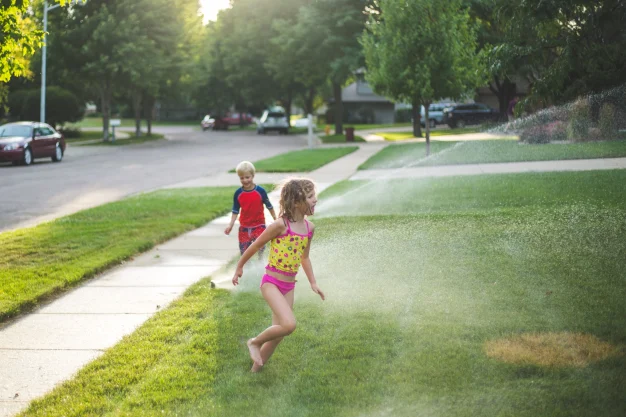
Save the Children: Rising temperatures are affecting children in so many ways
Soaring global temperatures are harming the health of our children, restricting their education and making them anxious about the future, says the Save the Children charity.
That’s the message from the Save the Children charity, which highlights in a new report the far-ranging repercussions of the rising temperatures on children across the world.
China recorded its highest-ever temperature recently, while nearly a third of all Americans – including over 20 million children – have been under heat advisories in recent days. Europe meanwhile has been baking in temperatures that have hit 48C in some places.
The past few months have seen record-breaking temperatures across many countries in Asia, with children affected by poverty, inequality and discrimination disproportionately affected.
Save the Children, in partnership with Vrije Universiteit Brussels, has published new research, which shows that children born in 2020 face on average seven times as many scorching heatwaves as their grandparents under the emission reduction pledges made as part of the 2015 Paris Agreement.
Yet while these findings, published in the report Born into the Climate Crisis, are clearly concerning, the charity says that the world ‘still has the power to act’. Taking the urgent step of limiting warming temperatures to 1.5C above pre-industrial levels would reduce this average additional lifetime exposure to heatwaves by 45 per cent.
Authorities also need to adapt schools and health systems so that they are resilient to heatwaves, child-sensitive and accessible and available to all, adds Save the Children.
Kelley Toole, Global Head of Climate Change at Save the Children, said: “Children around the world are being affected by the climate crisis now. Heatwaves make them sick, stop them from learning and leave them hungry. We need urgent climate action now and children need to be at the heart of this.”
The charity identifies five ways in which these heatwaves are impacting on children:
1) HEALTH IMPACTS
Children exposed to extreme heat are at greater risk of respiratory disease, kidney disease and other health hazards. The more that children are exposed to extreme heat, the greater their risk of respiratory and kidney disease, fever, and electrolyte imbalance, which can disrupt a range of critical functions, including heart and neurological functions, according to a Lancet study[iii]. It can also cause severe dehydration, exhaustion and heatstroke, which if untreated can quickly damage the brain, heart, kidneys and muscles, being fatal in some cases.
2) DISRUPTED LEARNING
Recent heatwaves have seen schools close around the world.
Even when children can go to school, the heat can affect their concentration. Child campaigner Justina, 16, from Zambia, told Save the Children about fainting in the classroom: “When it’s so hot, I faint. Last week, I fainted because of the hotness. That was at school, and I felt bad that it was in public. I don’t know what happened to me! I felt suffocated, due to the heat.”
3) HUNGER
Across the world, crop failures and the death of livestock brought about by extreme heat put food out of reach for children and families and often end up pushing prices up for everyone, The record-breaking heat in the US is currently threatening crop yields, for example, and lower-income countries have been facing drought and crop failures for years.
4) UNABLE TO PLAY
For many children, these heatwaves are coming as schools break up for the holidays. But with authorities warning people to stay inside, children are more likely to be cooped up, lonely and unable to do activities that are critical to their physical and mental development, such as playing with friends and physical exercise. This can also pose protection risks to children.
5) PSYCHOLOGICAL DISTRESS
Hot summer days drive up the number of people experiencing mental health emergencies, according to recent research.
Even watching the unfolding climate emergency at a distance takes its toll on the mental health of children all over the world. Research from Save the Children UK last year found that 70 per cent of children in the UK were worried about the future they will inherit, with 56% saying they thought climate change and inequality are causing a deterioration in child mental health globally.
Click here for the full report (in PDF format)
Source: Save the Children




